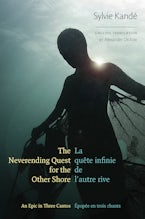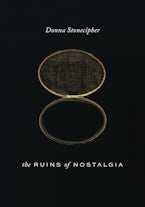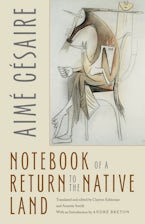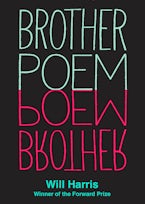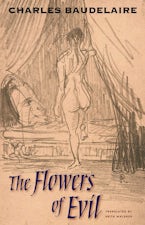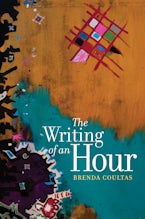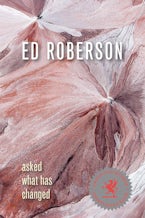- Home
- Wesleyan Poetry Series
- poetry
- literary criticism
- Paris Spleen
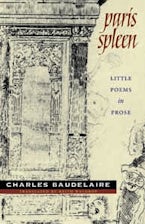
Paris Spleen
little poems in prose
Translated by Keith Waldrop
Series: Wesleyan Poetry Series
Sales Date: 2020-04-07
A modernist classic translated for the twenty-first century
Between 1855 and his death in 1867, Charles Baudelaire inaugurated a new—and in his own words "dangerous"—hybrid form in a series of prose poems known as Paris Spleen. Important and provocative, these fifty poems take the reader on a tour of 1850s Paris, through gleaming cafes and filthy side streets, revealing a metropolis on the eve of great change. In its deliberate fragmentation and merging of the lyrical with the sardonic, Le Spleen de Paris may be regarded as one of the earliest and most successful examples of a specifically urban writing, the textual equivalent of the city scenes of the Impressionists. In this compelling new translation, Keith Waldrop delivers the companion to his innovative translation of The Flowers of Evil. Here, Waldrop's perfectly modulated mix releases the music, intensity, and dissonance in Baudelaire's prose. The result is a powerful new re-imagining that is closer to Baudelaire's own poetry than any previous English translation.
Translator's Introduction
Dedication: for Arsène Houssaye
The Stranger
An Old Woman's Despair
The Artist's Confiteor
A Joker
Double Bedroom
To Each His Chimæra
The Fool and Venus
Dog and Flask
The Bad Glazier
One A.M.
Wild Woman and Little Darling
The Crowd
Widows
The Old Showman
Cake
The Clock
A Hemisphere in a Head of Hair
Invitation to the Voyage
A Toy for the Poor
Fairy Gifts
Temptations or Eros, Plutus and Glory
Evening Twilight
Solitude
Planning
Dorothea the Beautiful
The Eyes of the Poor
An Heroic Death
The False Coin
Generous Gambler
The Rope
Callings
The Thyrsus
Be Drunk
Already!
Windows
The Urge to Paint
Moon Favors
Which Is the True?
A Thoroughbred
The Mirror
The Port
Mistresses Portrayed
The Gallant Marksman
Soup and Clouds
Shooting-Gallery and Cemetery
Lost Halo
Mademoiselle Bistoury
Anywhere Out of the World
Knock Down the Poor!
Good Dogs
CHARLES BAUDELAIRE (1821–1867) wrote some of the most influential poetry of the nineteenth century in books including Les Fleurs du Mal and Le Spleen de Paris. KEITH WALDROP is author of numerous collections of poetry and is the translator of The Selected Poems of Edmond Jabes, as well as works by Claude Royet-Journoud, Anne-Marie Albiach, and Jean Grosjean.
"Keith Waldrop's task as translator is challenging. ... He is capable of compression, successfully handling the text's moments of laconic satire (the wealthy drinking from 'glasses larger than their thirst').... Above all, he keeps faith with Baudelaire's overarching aim: to accommodate things, and people, out of place, in a language equally alienated."
~Ben Morgan, Times Literary Supplement
"A handsome pendant to Waldrop's previous translation of The Flowers of Evil. There, his prose provided a sober caution against poetic inebriation; here it registers the sorry morning-after of the lyric subject."
~Richard Sieburth
"Waldrop's translations soarperhaps getting closer to Baudelaire's rich tone than any other translation."
~Chicago Review
"Baudelaire considered prose poetry a miracle genre. ... The present translation of Baudelaire's seminal work offers many advantages. ... (Waldrop) writes in clear, powerful English. And above all, he makes the right choices, those one would expect from an award-winning poet and seasoned translator.... Waldrop conveys the lyricism and satire of the original. His English mirrors the musicality of French. ... Essential."
~C.B. Kerr, Choice
"Keith Waldrop's task as translator is challenging. ... He is capable of compression, successfully handling the text's moments of laconic satire (the wealthy drinking from 'glasses larger than their thirst'). Above all, he keeps faith with Baudelaire's overarching aim: to accommodate things, and people, out of place, in a language equally alienated."
~Ben Morgan, Times Literary Supplement
"This is Baudelaire at the limit, having uncovered a new feeling that does indeed appear as a moral history, the private life in the public turn."
~Joshua Clover, The Nation



